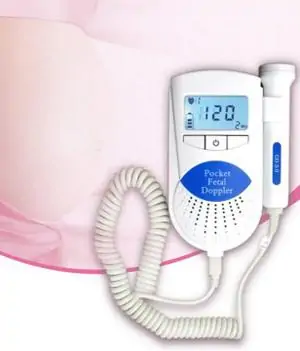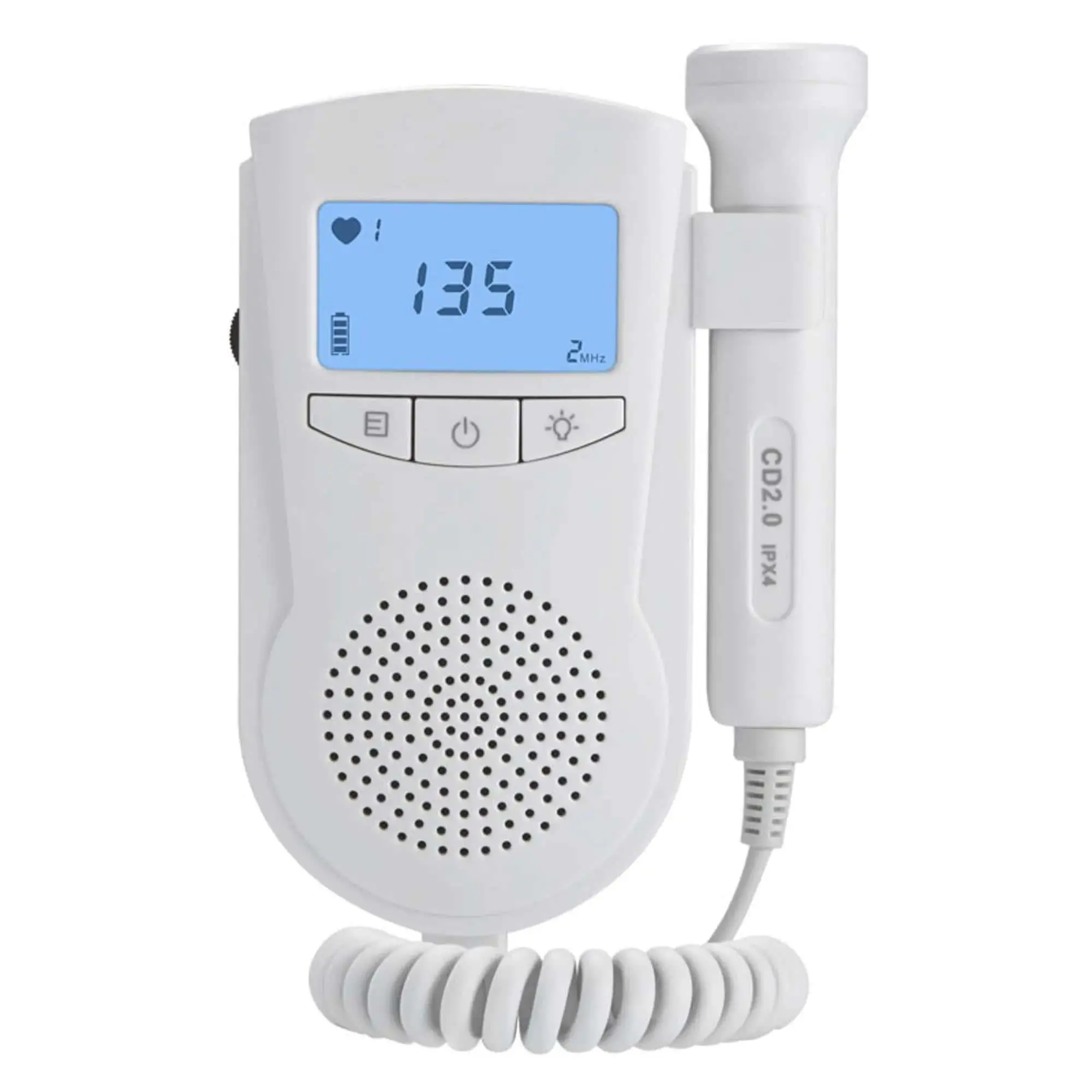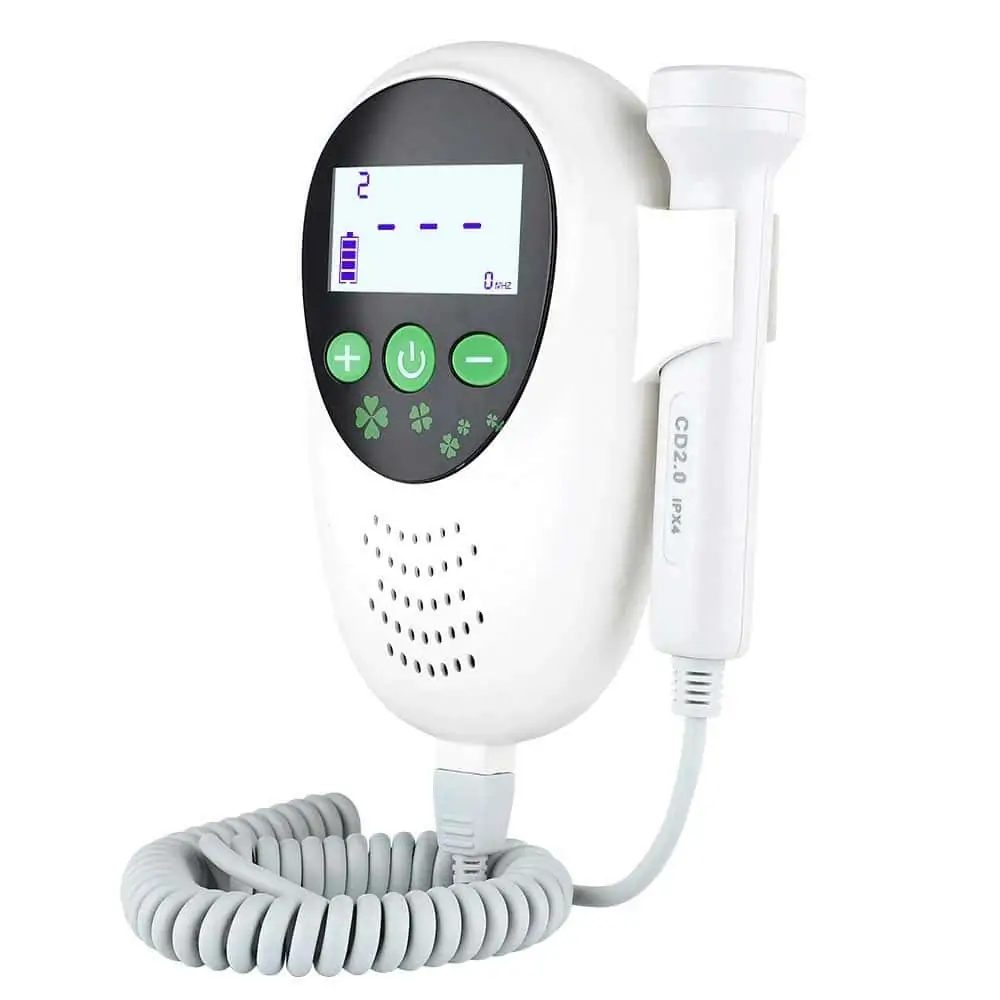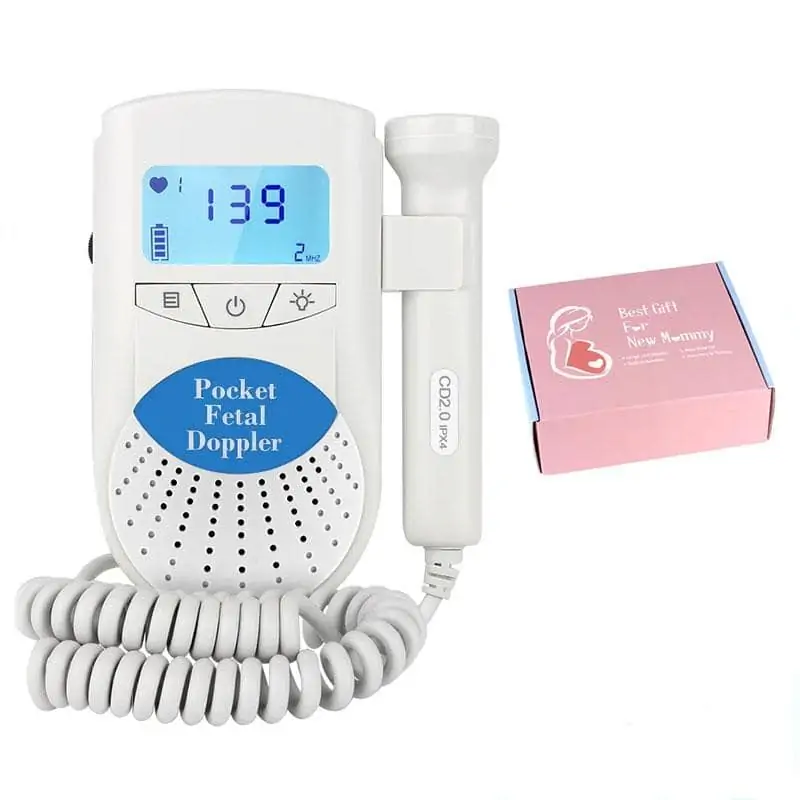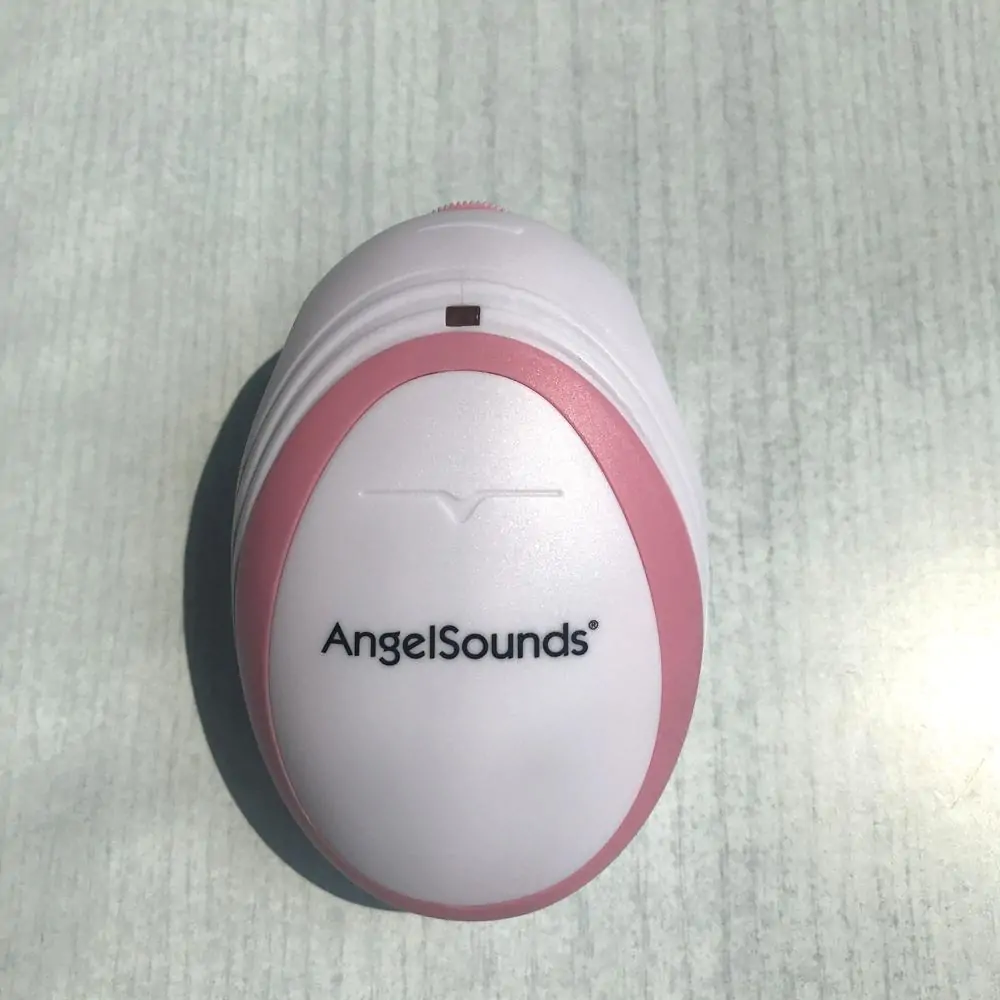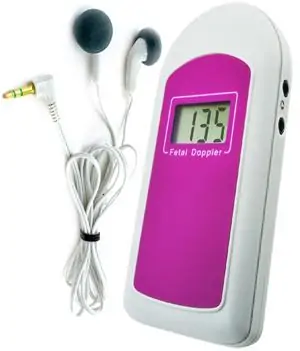Prenatal Fetal Doppler: Enhancing Your Pregnancy Experience Leave a comment
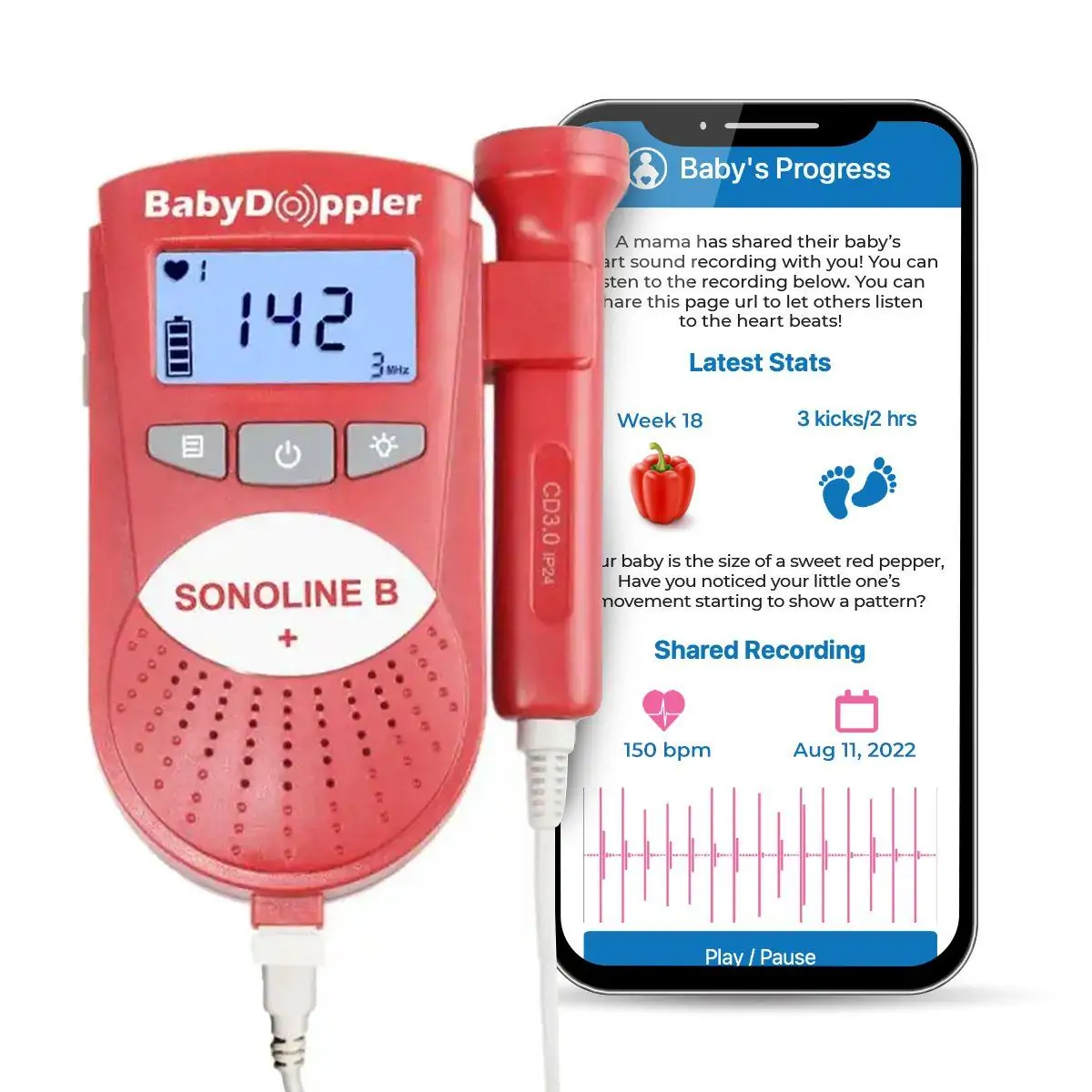
Prenatal Fetal Doppler
The journey to parenthood is one filled with excitement and anticipation. Among the many changes that occur during pregnancy, the fetal heartbeat is one of the most heartwarming and reassuring experiences for expectant parents. A prenatal fetal Doppler is a device that many parents choose to use during this transformative time, providing a window into the wellbeing of their baby. In this article, we’ll explore what a prenatal fetal Doppler is, its benefits, practical usage tips, and more.
What is a Prenatal Fetal Doppler?
A prenatal fetal Doppler is a hand-held ultrasound device designed to detect the fetal heartbeat during pregnancy. This non-invasive tool uses sound waves to create audio signals that represent the baby’s heartbeat, allowing parents and healthcare providers to monitor the baby’s health easily and effectively.
How Does a Fetal Doppler Work?
The mechanism behind a fetal Doppler is simple yet effective:
-
- The device emits high-frequency sound waves.
-
- These waves bounce off the moving heart of the fetus.
-
- The Doppler converts the returning sound waves into audible sounds, which is the heartbeat.
Benefits of Using a Prenatal Fetal Doppler
Using a prenatal fetal Doppler can provide several advantages, including:
1. Early Bonding
Hearing the fetal heartbeat can facilitate emotional bonding between parents and their unborn child, enhancing the overall pregnancy experience.
2. Monitoring Fetal Health
Frequent checks with a fetal Doppler enable parents to become familiar with their baby’s heartbeat patterns, helping identify any abnormalities or changes that may warrant medical attention.
3. Reducing anxiety
For many expectant parents, anxiety about fetal health is common. Regularly using a fetal Doppler can help soothe these worries by providing reassurance that the baby is healthy.
4. Cost-Effective Option
Purchasing a home fetal Doppler can be a cost-effective solution compared to regular trips to the clinic for heart monitoring, especially for those who wish to monitor on their own terms.
Practical Tips for Using a Fetal Doppler
Using a fetal Doppler can be straightforward, but here are some tips to enhance the experience:
-
- Choose the Right Time: Optimal times to use a Doppler are typically in the morning or after meals when the baby is active.
-
- Find the right Position: lying flat on your back or tilting slightly can help with sound wave transmission.
-
- Use Appropriate Gel: Use a water-based gel to ensure that the sound waves are transmitted effectively.
-
- Be Patient: it may take several minutes to find the heartbeat, especially early in pregnancy.
What to Expect with a Fetal Doppler
When you finally locate your baby’s heartbeat, expect to here a fast, rhythmic sound that is distinct from your own heart rate. It’s generally much quicker, averaging between 120-160 beats per minute. Here’s a simple comparison of adult and fetal heart rates:
| Heart Rate | Adult | Fetal (Average) |
|---|---|---|
| Beats per Minute | 60-100 | 120-160 |
Case Studies of Prenatal Doppler Experiences
Here are two first-hand experiences shared by expectant parents using prenatal fetal Dopplers:
Case Study 1: Jane’s Journey
Jane was anxious during her first pregnancy, often worrying about her baby’s health. She decided to invest in a prenatal Doppler early on and mentioned that hearing the heartbeat eased her fears considerably. “It made me feel in control and more connected to my baby,” she said.
Case Study 2: Mike and Sarah’s Adventure
Mike and Sarah successfully took turns listening to their baby’s heart while documenting the changes in heart rate. They shared their findings with their doctor, which led to beneficial conversations about monitoring their pregnancy health. “It became a special bonding activity for us,” they said.
Safety Considerations
While a prenatal fetal Doppler can be a valuable tool, it’s important to prioritize safety:
-
- Always consult with a healthcare professional before using a fetal Doppler.
-
- Limit usage frequency and duration; overuse may lead to frustration or unnecessary anxiety.
-
- Do not rely solely on a Doppler for fetal health; regular medical check-ups are essential.
Conclusion
A prenatal fetal Doppler can be a delightful addition to your pregnancy journey, providing reassurance, facilitating bonding, and allowing expectant parents to actively engage with their baby’s health. As with any medical device, it’s crucial to use it safely and in conjunction with regular prenatal care. Always consult with your healthcare provider to ensure a healthy pregnancy and a safe delivery. Happy listening!







